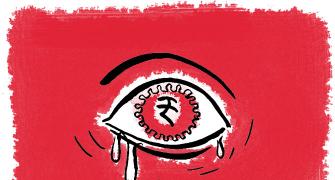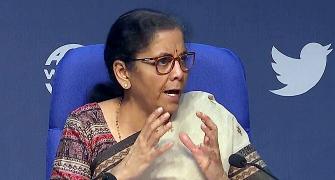The report said the moratorium for three more months will imply that companies need not pay till August 31, 2020, and this means that there is almost minimal possibility of companies being able to service their interest liabilities then in September.

With the government extending the nationwide lockdown up to May 31, the Reserve Bank of India (RBI) is likely to extend the moratorium on repayment of loans for three more months, according to an SBI research report.
On Sunday, the National Disaster Management Authority (NDMA), the nodal department, announced lockdown 4.0 till May 31 to check the spread of the novel coronavirus.
The lockdown was first announced by Prime Minister Narendra Modi on March 24 for 21 days in a bid to combat the COVID-19 pandemic. It was first extended till May 3 and again till May 17.
In March, RBI had allowed a three-month moratorium on payment of all term loans due between March 1, 2020 and May 31, 2020.
"With the lockdown now extended up to May 31, we expect RBI to extend the moratorium by three months more," SBI's research report- Ecowrap said.
The report said the moratorium for three more months will imply that companies need not pay till August 31, 2020, and this means that there is almost minimal possibility of companies being able to service their interest liabilities then in September.
Failing to repay the interest liabilities will mean the account might be classified as non-performing loans as per the RBI norms.
"Thus, the RBI needs to give operational flexibility to banks for a comprehensive restructuring of the existing loans and also a reclassification of 90 day norm," the report said.
The RBI's June 7 circular is stringent and gives little flexibility to banks.
"The revised restructuring norms should give banks to restructure like say converting interest liabilities up to March 2021 into term loans, repayable in 3-5 years for working capital and at the end of the tenor in case of term loans,” the report said.
RBI also needs to also clarify whether working capital expansions classify as COVID-19 debt, it said.
Photograph: Francis Mascarenhas/Reuters









